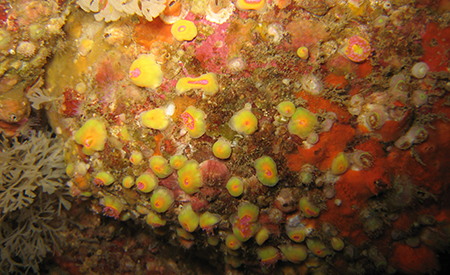Keyword
Ocean thermal energy
Type of resources
Available actions
Topics
Keywords
Contact for the resource
Provided by
Formats
status
From
1
-
1
/
1
-

The main objective of this atlas is to summarise the knowledge acquired on biofouling, and more generally on communities of living organisms on hard substrates, available today in mainland France and the French overseas territories, in order to anticipate the issues that this phenomenon will pose in an ORE context. The atlas is based on the most exhaustive bibliographical analysis possible, including A-level scientific articles, reports (training courses, monitoring, studies), and works presenting the results of studies conducted in French waters
 Catalogue PIGMA
Catalogue PIGMA